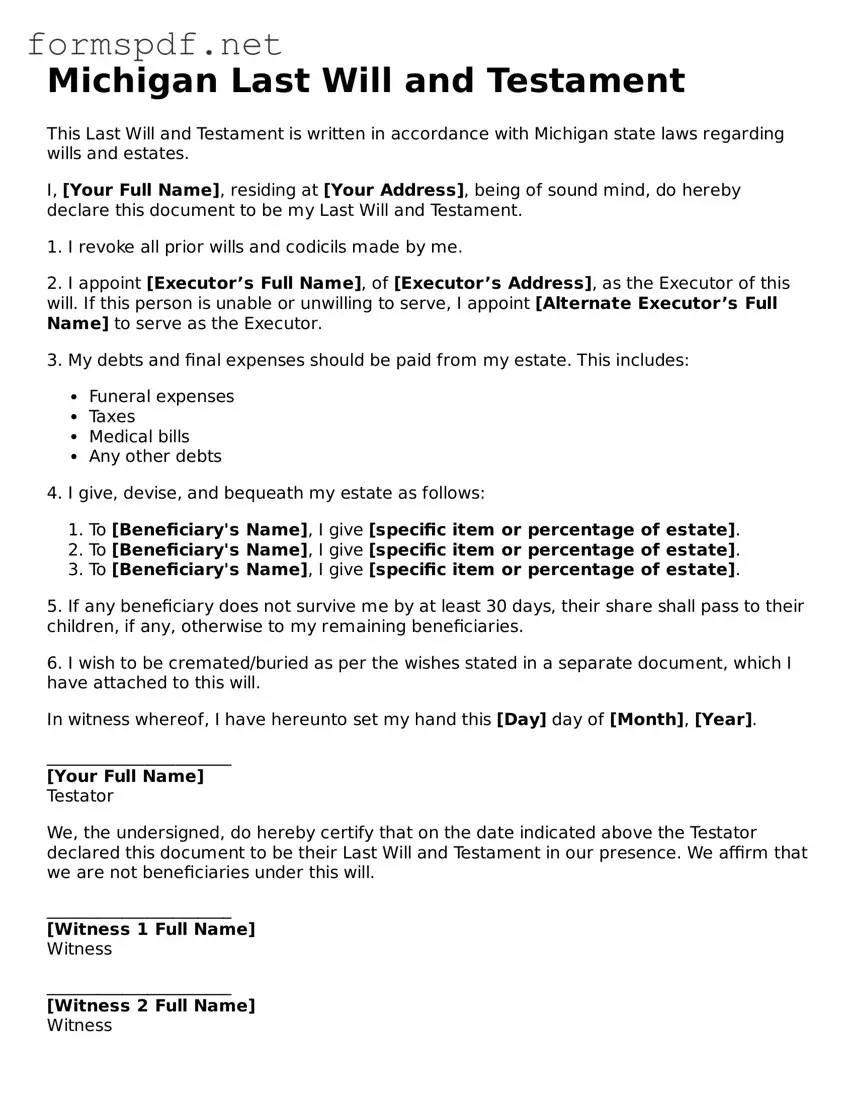Free Last Will and Testament Form for Michigan
A Last Will and Testament is a legal document that outlines how a person's assets and affairs will be managed after their death. In Michigan, this form serves as a crucial tool for ensuring that your wishes are honored and that your loved ones are taken care of. To get started on securing your legacy, fill out the form by clicking the button below.
Launch Editor Now

Free Last Will and Testament Form for Michigan
Launch Editor Now

Launch Editor Now
or
⇓ Last Will and Testament PDF
Don’t leave without finishing the form
Finish your Last Will and Testament online and download the final version.